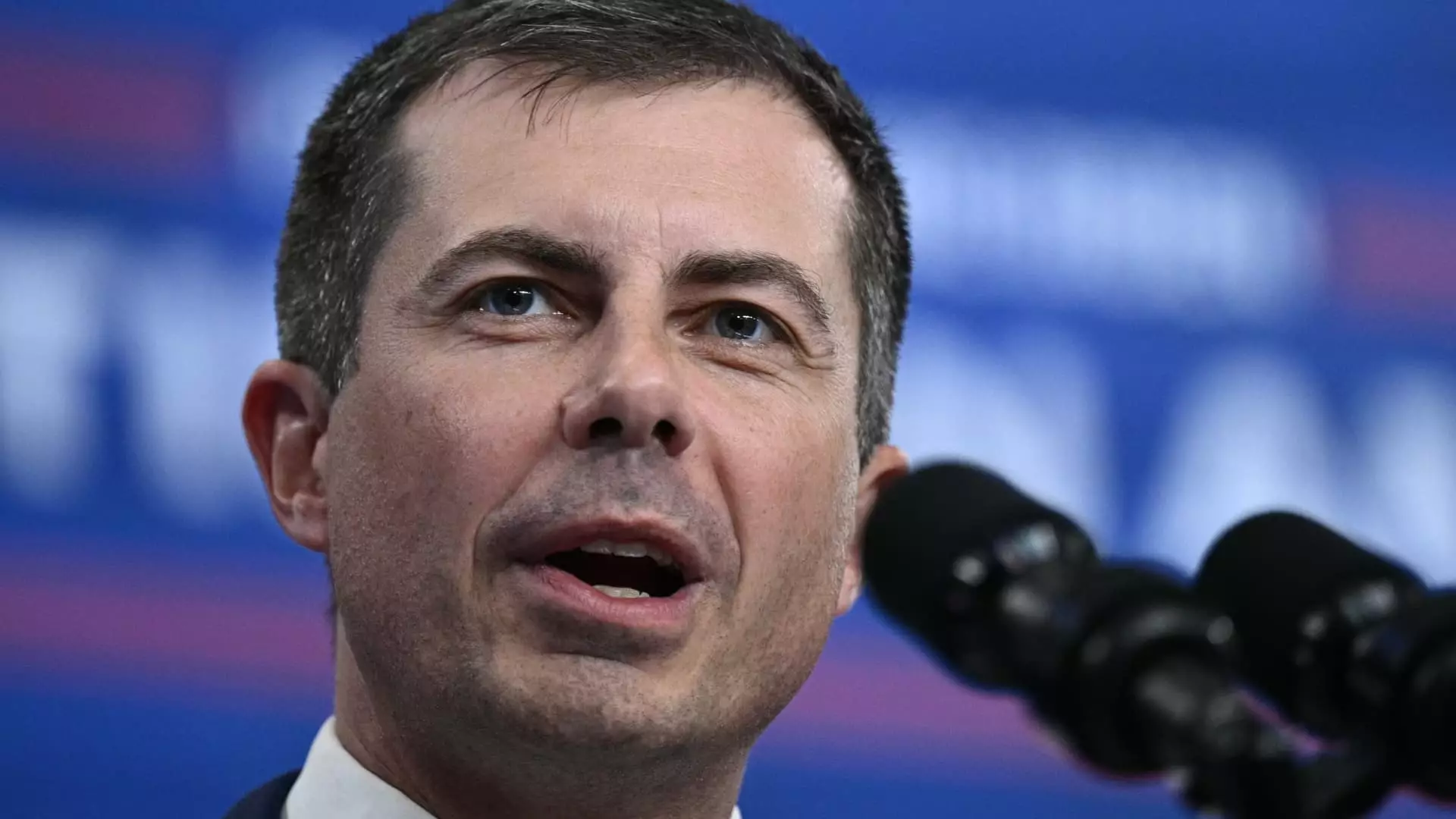In the age of social media, misinformation can spread faster than ever before, with significant implications for public perception and government operations. A recent example involving Transportation Secretary Pete Buttigieg and billionaire entrepreneur Elon Musk highlights just how damaging false claims can be, particularly in the delicate context of disaster response and recovery. As communities struggle to recover from Hurricane Helene, communications that lack factual accuracy are not just misleading; they threaten effective assistance to those in need.
Transportation Secretary Buttigieg took to Musk’s social media platform, X, to refute unsubstantiated allegations that federal agencies were obstructing rescue efforts in the aftermath of Hurricane Helene. Musk had claimed that the Federal Aviation Administration (FAA) was “shutting down airspace” in the disaster zone, effectively stymying flights intended to deliver vital supplies to affected citizens. Such statements can carry immense weight, considering Musk’s follower count exceeds 200 million, rendering his words potent in shaping public discourse. Buttigieg’s public rebuttal emphasized the importance of accurate information, stating, “No one is shutting down the airspace,” and invited Musk to reach out directly should he encounter genuine issues.
The response was not merely an attempt to counter misinformation; it illustrated the challenges faced by government officials who must often navigate a labyrinth of digital narratives while addressing pressing humanitarian crises. The FAA corroborated Buttigieg’s statements, clarifying that no restrictions were in place for flights in North Carolina, thus reinforcing the idea that the government was facilitating, not obstructing, rescue operations.
Musk’s claims did not exist in a vacuum; they were part of a troubling pattern wherein influential figures utilize their platforms to propagate conjectures without basis. He further insinuated that the Federal Emergency Management Agency (FEMA) was not only failing in its mission to assist but was actively preventing citizens from offering help. These assertions were particularly concerning given that they could lead to skepticism toward governmental assistance programs at a time when thousands desperately needed support.
This interplay between misinformation and credibility is dangerous. When towering figures in technology and business, like Musk, generate narratives that undermine governmental initiatives, public trust can erode rapidly. A resulting decline in confidence could discourage individuals from seeking necessary aid or supporting collaborative recovery efforts.
Adding another layer of complexity, Musk has openly supported the Republican party and former President Donald Trump, who has also endorsed Musk’s erroneous claims on his platform. This endorsement serves to amplify Musk’s misstatements, particularly for those who view these figures as trusted sources. On social media, where direct engagement with followers is commonplace, both Musk and Trump can sway public sentiment quickly, complicating the task of grounding opinions in factual accuracy.
In this environment, followers may prioritize allegiance over truth, allowing misinformation to propagate with little accountability. Musk’s previous threats to sue the FAA and his criticisms of various federal entities further illustrate a contentious relationship with government bodies that are nonetheless essential to his business endeavors, such as SpaceX and Tesla.
In a somewhat ironic twist, while Musk criticized FEMA, both the agency and his companies have worked in cooperation during recovery efforts for Hurricane Helene. SpaceX pledged to donate 500 Starlink kits to assist in reestablishing communication in affected areas and made the Starlink internet service available for free for those impacted by the storm. Such initiatives underline the necessity of collaborative efforts between private sector giants and government agencies during crises. When unfounded claims threaten to fray these partnerships, the potential for responsible recovery diminishes.
Navigating the turbulent waters of social media discourse necessitates vigilance from both public figures and the general populace. Awareness of the influence wielded by individuals like Musk is crucial. It underscores the importance of relying on validated information, especially during critical times. Effective disaster response relies not just on physical resources, but on a shared commitment to truth and collaborative spirit.
As we face an increasingly complex digital landscape, critical thinking skills should be emphasized, allowing a society more capable of discerning fact from fiction. The combined efforts of individuals, agencies, and technology must come together based on mutual respect and accurate information if we are to weather the storms—both literal and figurative—that confront us.


Leave a Reply